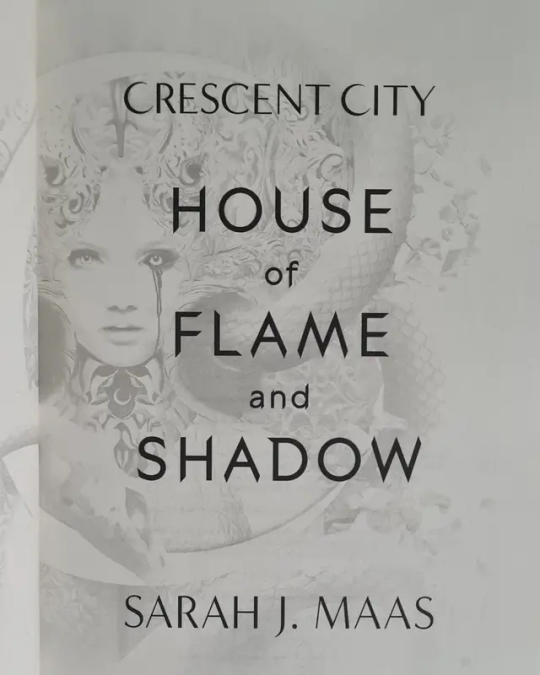#College Review
Text
MHT CET 2024 CAP ROUND 1 Institute-Wise Allotment List
Institute-Wise Allotment List
Sr. No.Institute CodeInstitute NameCAP-I
1.01002Government College of Engineering, Amravati
2.01005Sant Gadge Baba Amravati University,Amravati
3.01012Government College of Engineering,Yavatmal
4.01101Shri Sant Gajanan Maharaj College of Engineering,Shegaon
5.01105Prof. Ram Meghe Institute of Technology & Research, Amravati
6.01107P. R. Pote Patil College of…
#college review#Mht cet#Mht cet 2024#MHT CET 2024 CAP ROUND 1 Institute-Wise Allotment List#Mht cet Cap Round#primarily based on MHT-CET#top colleges in Maharashtra
0 notes
Text
Bit Mesra College: The Hidden Gem of Indian Education
BIT Mesra: India’s hidden gem in education. Top IT placements, approachable teachers, prestigious alumni, 780-acre lush campus, extensive sports complex, vibrant coding culture, and the pioneering Space Engineering Department.
Bit Mesra
Introduction to Bit Mesra
In the vast landscape of Indian higher education, there are certain institutions that shine brightly, even if they don’t always find…

View On WordPress
0 notes
Text

disappears for weeks posts this disappears again
#ninjago#aphid’s ninjashits#jaya#ninjago jaya#jaya ninjago#nya jiang#nya smith#nya ninjago#jay walker#jay ninjago#im just busy w college review lel#and idv…#still on that ninjago life though#the original is somewhere on twitter but i lost it erps#this is so stupid
2K notes
·
View notes
Text









Book collections
#academia#acadmia#books#university#studying#studyblr#stem academia#student live#uni struggles#college#book review#book quotes#books & libraries#booknerd#book#bookshelf
8K notes
·
View notes
Text


9/8/24🌿🌿
Proof writing notes~
I have a research conference I’m presenting at coming up and I’m feeling stressed about it lollll
#studyblr#studyspo#my notes#study#academia#study notes#productivity#study motivation#notes#light academia#studyspiration#studying#review notes#lecture notes#uni studyspo#uni studyblr#uni struggles#uni#uni student#uni stuff#college studyspo#college studyblr#college stress#college studies#college stuff#college student#college#light acadamia aesthetic#academia aesthetic#study aesthetic
395 notes
·
View notes
Text
you want a new kind of guy, fine, i raise you: the lady i was briefly roommates with in college who once smoked a blunt at a party and then spent an hour confessing earnestly to me that she genuinely preferred reading detailed episode recaps over actually watching the tv show in question
#she sounded so remorseful & i just stood staring like an anthropologist watching their phd thesis spontaneously manifest before their eyes#apparently she would watch the pilot episode to get a feel for the characters#and then just read a bunch of recaps & episode reviews instead of watching future episodes. what fresh steaming hell#this conversation took place like a year and a half after we were roommates btw. i had seen her maybe twice in that time period#i thought she was a standard frat girl but then 18 months later she appears in the wild grass to reveal unhinged character background to me#and i'm just standing there nodding feeling like i missed a weird opportunity i did not want or ask for#honestly thought i was the weirdest person in that apartment situation but now i'm wondering what our other 2 roommates were hiding#not my strangest college experience at ALL but like. definitely top 20#this wasn't the same person as Aquarium Girl btw but oddly enough they were roommates actually#(not at the same time that Recaps Lady and i were roommates but at different intervals idk)#anyway i probably should have interviewed at more than one apartment before taking over a sublease but summer sess is a weird time u know#oh and this happened in Hong Kong btw
3K notes
·
View notes
Text



my most recent read — jade war by fonda lee
i've been really struggling with fantasy this past year (i blame wheel of time for putting me into a slump😵💫), but i finally feel my sff mood returning and picking up jade war was the perfect re-entry into the genre.
i surprisingly LOVED this book. the characters are absolute perfection, the slow and intricate politics worked so well for me, and this series is so propelling. there's never a dull moment. everyone always pitches this series as 'the godfather but asian and fantasy', and i absolutely agree. beyond excited to continue!!
#4.25 stars#the green bone saga#fonda lee#jade war#jade city#sff#fantasy#scifi#literature aesthetics#books#book#bookish#bookblr#bookworm#bookstagram#dark academia#booklover#books and libraries#book log#review#book review#photo dump#photo diary#photo diaries#studyblr#study space#study hard#study#college student#red nails
114 notes
·
View notes
Text
Sinhgad College of Engineering, Pune
Detailed Review of Sinhgad College of Engineering, Pune
OverviewSinhgad College of Engineering (SCOE), established in 1996, is a prominent private engineering college located in Pune, Maharashtra. Affiliated with Savitribai Phule Pune University (SPPU), SCOE offers undergraduate, postgraduate, and doctoral programs across various engineering disciplines. The college is known for its focus on…
0 notes
Text




6/30/24🍵🍵
Micro + some photos from a research trip~
I love getting to visit the beach
#studyblr#studyspo#my notes#study#study notes#academia#productivity#notes#study motivation#light academia#light acadamia aesthetic#review notes#lecture notes#study area#study inspiration#study space#dark acamedia#college stress#college studyspo#college studyblr#college studies#college stuff#college student#uni studyspo#uni studyblr#uni struggles#uni student#studying#study aesthetic#studyspiration
459 notes
·
View notes
Text
KJ Somaiya College of Engineering, Mumbai
Detailed Review of KJ Somaiya College of Engineering, Mumbai
OverviewKJ Somaiya College of Engineering, part of the Somaiya Vidyavihar University, is a well-established private engineering college located in Mumbai, Maharashtra. Founded in 1983, the college offers undergraduate and postgraduate programs in various engineering disciplines. It is known for its academic excellence, research…
#college#college review#KJ Somaiya College of Engineering#Maharashtra Engineering Institutes#Mht cet#Mumbai
0 notes
Text
Just a few years ago, maternal mortality was the rare reproductive justice issue that seemed to transcend partisan politics. In late 2018, Republicans and Democrats in Congress even came together to approve $60 million for state maternal mortality review committees (MMRCs) to study why so many American women die from causes related to pregnancy and childbirth. Donald Trump—not exactly famous for his respect toward pregnant women and new mothers in his personal life—signed the bill.
But some Republicans’ enthusiasm for these committees began to wane at around the same time abortion rights advocates began warning that draconian restrictions on reproductive care would only push the shamefully high US maternal mortality rate—the worst among affluent countries—even higher. Nor did conservatives, like Idaho lawmakers, appreciate the policy recommendations that came out of many MMRCs.
Texas, whose record on maternal mortality (and maternal health more broadly) has been an embarrassment since long before Dobbs, has a history of controversial attempts to play down potentially unwelcome findings from its MMRC. After the Dobbs decision, when the state committee was working on its report examining maternal deaths in 2019, Texas officials decided to slow-roll its release until mid-2023—too late for lawmakers to act on its recommendations. “When we bury data, we are dishonorably burying each and every woman that we lost,” one furious committee member told the Texas Tribune. Ultimately, officials released the report three months late, in December 2022. Soon afterward, the Legislature reconfigured the MMRC, increasing its size—but also ejected one of its most outspoken members.
Now Texas officials have stirred up the biggest furor yet, appointing a leading anti-abortion activist to the panel. Dr. Ingrid Skop, an OB-GYN who practiced in San Antonio for 25 years, will join the MMRC as a community member representing rural areas (even though she is from the seventh-largest city in the US). But she also represents a largely overlooked segment of the anti-abortion movement: researchers who seek to discredit the idea that abortion restrictions are putting women’s lives in danger. To the contrary, Skop and her allies argue that abortions are the real, hidden cause of many maternal deaths—and that abortion restrictions actually save mothers’ lives.
One of several doctors suing to revoke the Food and Drug Administration’s approval of mifepristone, the medication abortion drug at the center of one of this term’s blockbuster Supreme Court cases, Skop has been a familiar face on the anti-abortion expert-witness circuit for more than a decade. She has frequently testified in favor of strict abortion bans in court cases, state legislatures, and before Congress. In a high-profile case this winter, she submitted an affidavit stating that a Dallas woman named Kate Cox— who was seeking a judge’s permission to terminate a nonviable pregnancy—did not qualify for an abortion under Texas’s medical exception. The Texas Supreme Court rejected Cox’s petition, and to get medical care, the 31-year-old mother of two had to flee the state. Apparently, Skop’s hard-line stance against abortion-ban exemptions extends to children. At a 2021 congressional hearing, she testified that rape or incest victims as young as 9 or 10 could potentially carry pregnancies to term. “If she is developed enough to be menstruating and become pregnant, and reached sexual maturity,” Skop said, “she can safely give birth to a baby.”
Skop’s relatively new role as vice president and director of medical affairs for the Charlotte Lozier Institute, the research arm of Susan B. Anthony Pro-Life America, has solidified her standing in the anti-abortion firmament. Lozier, which has positioned itself as the anti-abortion alternative to the Guttmacher Institute, described Skop’s role as “coordinat[ing] the work of Lozier’s network of physicians and medical researchers who counter the abortion industry’s blizzard of misinformation with science and statistics for life.” Elsewhere on its website, Lozier notes that Skop’s “research on maternal mortality, abortion, and women’s health has been published in multiple peer-reviewed journals.”
What her Lozier bio doesn’t mention is that three of the studies Skop co-authored about the purported risks of abortion were retracted by their publisher this February. Attorneys representing Skop and her fellow anti-abortion doctors had cited the studies in the FDA-mifepristone case. As my colleague Madison Pauly reported, an independent review of the papers found “fundamental problems,” “incorrect factual assumptions,” “material errors,” “misleading presentations,” and undisclosed conflicts of interest between the studies’ authors (including Skop) and anti-abortion advocacy groups (including Lozier). In a rebuttal on its website, Lozier called the publisher’s move “meritless,” adding, “There is no legitimate reason for [the] retractions.”
Skop’s work on maternal mortality hasn’t received the same attention as those papers—yet. But her reflections on maternal deaths in the US have raised plenty of eyebrows.
Skop has argued repeatedly that abortions are directly and indirectly behind the rise in maternal mortality in the US. In a 53-page “Handbook of Maternal Mortality” she wrote for Lozier last year, she says that CDC maternal mortality data can’t be trusted in part because “there is much unreported maternal mortality and morbidity associated with legal, induced abortion, often obscured due to the political nature of the issue.” She claims that a history of abortions puts women at risk in pregnancy, childbirth, or during the postpartum period—whether from maternal complications she contends are linked to prior abortions, or from mental health problems, such as drug addiction and suicide, purportedly caused by abortion regret.
In another paper co-written with some of the same co-authors as in her retracted studies, Skop and her colleagues call for an overhaul of how states and the CDC collect maternal mortality data, urging the inclusion of “mandatory certification of all fetal losses,” including abortions.
And whereas the vast majority of public health experts predict that maternal deaths and near-deaths will increase in states with abortion bans, Skop takes the opposite view. In yet another Lozier paper, she lists 12 reasons why states with abortion bans will have fewer maternal deaths. For instance, she argues, because of abortion restrictions, women will have fewer later-term abortions, which tend to be more dangerous to women than first-trimester procedures. (In fact, researchers report, that state bans have led to an increase in second-trimester abortions.) She claims that since women who don’t have abortions won’t have mental health problems supposedly associated with pregnancy loss, their alleged risk of postpartum suicide would be reduced. (In fact, the idea that abortion regret is widespread and dangerous has been thoroughly debunked.) Skop makes a similar argument about abortion’s purported (and disproven) link to breast cancer, arguing that fewer abortions will mean fewer women dying of malignant tumors.
Much of Skop’s advocacy work has been done in collaboration with colleagues who share her strong ideological views. MMRCs, by contrast, have a public health role that is supposed to transcend politics—their focus is on analyzing the deaths of expectant and new mothers that occur within a year of the end of the pregnancy. Typically, committee members come from a wide range of professional backgrounds: In Texas, these include OB-GYNs, high-risk pregnancy specialists, nurses, mental health providers, public health researchers, and community advocates. Panels also aim to be racially and geographically diverse, the better to understand the communities—Black, Indigenous, rural, poor—where mothers are at disproportionate risk of dying. In a country that hasn’t prioritized maternal health, MMRCs are uniquely positioned to identify system failures and guide policy changes that can save lives.
Texas’s most recent maternal mortality report found that 90% of maternal deaths were preventable, racial disparities in maternal outcomes weren’t improving, and severe childbirth complications were up 23%—all before the state’s abortion bans took effect.
It remains to be seen how someone with Skop’s background and agenda will fit in with her new colleagues, especially at this dire moment for women in the state. Maternal health advocates aren’t optimistic: “This appointment speaks volumes about how seriously certain state leaders are taking the issue of maternal mortality,” Kamyon Conner, executive director of the Texas Equal Access Fund, told The Guardian. “It is another sign that the state is more interested in furthering their anti-abortion agenda than protecting the lives of pregnant Texans.”
Skop, contacted through Lozier, didn’t respond to a request for comment. In a statement to the Texas Tribune, Skop said she was joining the Texas MMRC because questions about maternal mortality data deserve “rigorous discourse.” “There are complex reasons for these statistics, including chronic illnesses, poverty, and difficulty obtaining prenatal care, and I have long been motivated to identify ways women’s care can be improved,” she said. “For over 30 years, I have advocated for both of my patients, a pregnant woman and her unborn child, and excellent medicine shouldn’t require I pit one against the other.”
Meanwhile, the American College of Obstetricians and Gynecologists criticized Skop’s appointment, asserting that members of any maternal mortality review committee should be “unbiased, free of conflicts of interest and focused on the appropriate standards of care.”
“The importance of the work done by MMRCs to inform how we respond to the maternal mortality crisis cannot be overstated,” the group said in a statement. “It is crucial that MMRC members be clinical experts whose work is informed by data, not ideology and bias.”
#us politics#news#republicans#conservatives#gop#mother jones#texas#maternal mortality review committees#dobbs v. jackson women's health organization#the texas tribune#Dr. Ingrid Skop#2024#mifepristone#Kate Cox#child pregnancy#abortions#abortion bans#reproductive justice#reproductive health#reproductive rights#Charlotte Lozier Institute#Susan B. Anthony Pro-Life America#Handbook of Maternal Mortality#maternal mortality#Texas Equal Access Fund#Kamyon Conner#The Guardian#American College of Obstetricians and Gynecologists
66 notes
·
View notes
Text


7/5/2024🍵🍵
More micro eco notes + a river walk~
#studyblr#studyspo#my notes#study#study notes#academia#productivity#notes#study motivation#light academia#studyspiration#study inspiration#study space#studying#uni studyspo#uni studyblr#uni struggles#uni student#uni stuff#college studyspo#college stress#college studyblr#college studies#college stuff#college student#college#review notes#studying for exams#aesthetic notes#academia aesthetic
187 notes
·
View notes
Text

September brings the season of the witch, cigarettes and intensive study.
#dark academia#academia#aesthetic#bibliophile#book photography#book review#bookish#currently reading#college#study motivation#studyblr#chaotic academia
32 notes
·
View notes
Text
10 steps to revise for an exam (and my recommended timeline)
Quickly go over the material that will be covered on the exam. Put each topic into a category of "Good" "Okay" and "Bad" based on your understanding of that topic. (Day 0 - Before revising)
Look at steps 3-10 and put them into a study plan that you can follow. This will keep you on track and ensure you cover everything. (Day 0 - Before revising)
First, start with your "Okay" list. Briefly revise each topic, focusing on definitions, formulas, and general concepts. At this point, you should be ensuring that you know the information, not focusing on exam practice. I like using flashcards for this step to ensure I actually know the information (Day 1)
Now, do the same for your "Good" list. (Day 1 or 2)
Once you've done steps 2 and 3, you're ready to practice! If your professor has given you practice/review questions, use those. You can also find great questions in your textbook or from past assignments. (Day 2)
Now, focus on your "Bad" category. Do a much more thorough review of the information in this category, almost as if you're learning it for the first time. This is a step where flashcards may be super helpful, especially if you need to power through a lot of memorization work (Day 3).
This is where you practice your "Bad" category. Make sure to do multiple questions for each topic to ensure that you're prepared for anything that comes your way (Day 4).
Revisit all the information you've studied over this process, and do more practice problems on the topics you're struggling with the most. (Day 5)
Take a deep breath, get some sleep, and eat a good meal! (Exam day!)
Take your exam!
#studying#studyblr#study tips#study#exam#test#exam revision#exam review#college#university#studyspo#student#study motivation
1K notes
·
View notes
Text


house of flame and shadow ; sarah j maas
this is floating somewhere between a high 3, low 4 stars for me. there was a lot to love and a LOT that could have been (and should have been) executed better. overall, i liked how everything wrapped up and how each character arc was completed. i've always said that 'house of earth and blood' is my favourite sjm novel, and this finale, although nowhere near a perfect conclusion, definitely didn't let the characters or the series down.
saying that, i have issues with the amount of plot conveniences in here. certain scenes felt so ridiculous and out of the bounds of logic that i had to laugh. it was difficult to suspend disbelief at times
nonetheless, i love these characters, and i love this world. this book was pure entertainment; i had so much fun reading and discussing with online friends. is it flawed? absolutely. but it was still a solid conclusion to a series i've been reading and loving for years now!!
#3 stars#house of flame and shadow#crescent city#house of earth and blood#house of sky and breath#sarah j maas#sjm#literature aesthetics#books#book#bookish#bookblr#bookworm#bookstagram#dark academia#booklover#books and libraries#book log#book review#s#beige#neutral tones#aesthetic#studyblr#study space#study hard#study tips#study#college student#fantasy
56 notes
·
View notes
Text

Got these gems today
#brave new world#aldous huxley#book blog#book recs#booklr#dark academia#light academia#book review#book photography#classic literature#book recs classic#french literature#american literature#german literature#russian literature#student life#english literature#college life#literature#book quotes#books & libraries#bookworm#books#study aesthetic#writer stuff#study blog#student#studyspo#studyblr#study motivation
32 notes
·
View notes